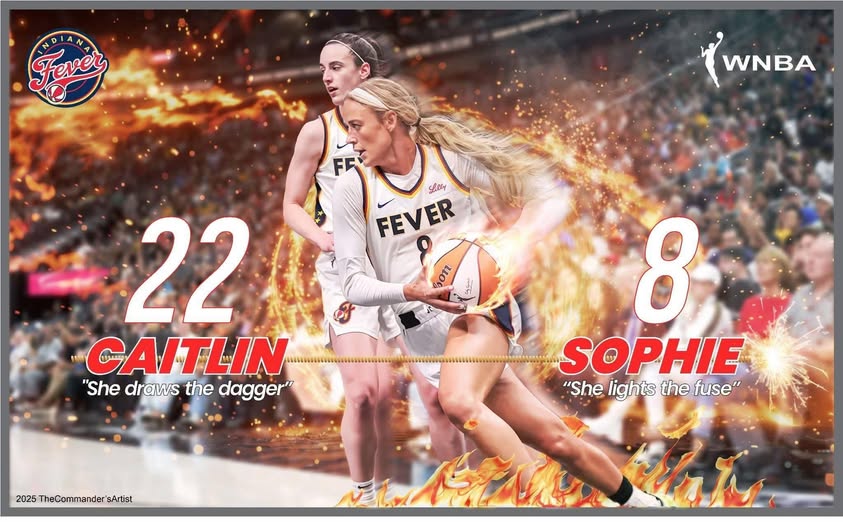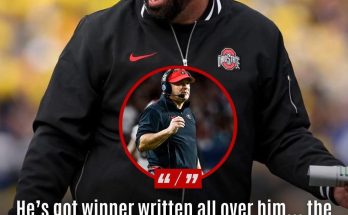Refs drive me nuts. Sometimes, watching a game feels more like watching a dramatic performance where the referees are the lead actors, not the players. And it’s not just the missed calls—it’s the inconsistency, the selective enforcement, and the bizarre interpretations that seem to change depending on the moment, the mood, or maybe even the weather. I’ve seen a lot of games, but nothing quite makes me shake my head like when a blatant foul turns into a jump ball. Case in point: the recent incident with Sophie.
Now, let me be clear—Sophie’s a tough player. She doesn’t flinch, doesn’t complain, and she plays through contact better than most. She has that rare mix of grit and poise, and she never backs down from a challenge. So when the 2-on-1 play happened, I expected her to fight through it, and of course, she did. What I didn’t expect was the way the referees interpreted what we all saw with our own eyes: a neck grab, a full-on hold that had no place in the game. And what was the result? A jump ball.
You’ve got to be kidding me.
This wasn’t some accidental brush or marginal contact. This was a defender—no, two defenders—going at her with full aggression. Sophie, being Sophie, didn’t just hold her ground; she flipped one of the players over her shoulder in the process, got up laughing like she’d just won a wrestling match instead of taken an elbow to the throat. That’s who she is. She finds the humor in it because she knows there’s no point arguing. But for the rest of us watching? It’s maddening.
Where’s the accountability? How can something so obvious go unchecked? A neck grab isn’t just against the rules—it’s dangerous. The kind of thing that, if you’re lucky, leaves a mark and if you’re not, can lead to serious injury. But instead of calling it what it was—an intentional foul, possibly even a flagrant—the refs decided it was “contested” possession. As if Sophie voluntarily wrapped her own neck up in someone else’s arms. Give me a break.
It’s moments like these that make you question the very purpose of having officials in the first place. Isn’t their job to protect players, ensure fair play, and maintain the integrity of the game? Because from the looks of it, the only thing they maintained was a sense of detachment from reality. Maybe they thought it was a tough game and wanted to let them play. But there’s a difference between letting them play and turning a blind eye to clear violations.
And let’s talk about the inconsistency. Because it wasn’t five minutes later that a light tap on the arm led to a whistle—against Sophie, no less. So let me get this straight: a neck grab in a 2-on-1 trap is a jump ball, but a hand check is a foul? The same player, different sides of the court, and suddenly the rules shift. It’s like the refs have a roulette wheel in their heads, spinning it every time a whistle might be needed.
I know, I know—refereeing is hard. There’s pressure, there’s speed, there’s noise, and there are fans yelling from every angle. But hard doesn’t mean impossible. The good refs, the ones who know what they’re doing, don’t just get the calls right; they get the moments right. They recognize when something has gone too far, when control is slipping, and when a message needs to be sent—not just to the players, but to everyone watching.
And what message did this call send? That if you’re physical enough, if you’re aggressive enough, and if the player you’re targeting has a sense of humor about it, you’ll get away with it. That’s not just unfair—it’s dangerous precedent. You’re teaching players that discipline and respect aren’t as valuable as brute force and chaos. That’s not basketball. That’s a free-for-all with a scoreboard.
There’s also the psychological toll. When players see that the refs aren’t going to protect them, they change how they play. Some get hesitant. Others start retaliating. And that’s how games spiral. The very thing referees are supposed to prevent—loss of control—becomes inevitable. Sophie might’ve laughed it off this time, but what about next time? What happens when the player on the receiving end of a neck grab decides to escalate, because clearly, no one’s going to call it otherwise?
Fans notice. Coaches notice. Players definitely notice. And that erodes trust. Not just in the officials, but in the system of the game. If you can’t rely on fair and consistent officiating, then everything becomes suspect. Every close game feels tainted. Every result feels like it came with an asterisk: depending on how the refs felt that day.
Let’s be honest: referees have the power to shape the outcome of games, whether they mean to or not. A missed call here, a phantom foul there, and momentum shifts. It doesn’t always show up on the box score, but it’s there. And when you add it up over the course of a season, it matters. A bad call in a tight game can mean the difference between playoffs and an early offseason.
And it’s not just about the missed calls, either. It’s the lack of explanation, the lack of transparency. Fans can see the replay, slow it down, analyze every frame. But refs? They make the call, double down on it, and move on. No accountability, no real discussion. And in a world where everything is scrutinized, where every moment is on video and every game is a highlight reel, that kind of opacity just doesn’t fly anymore.
Technology exists to help. Video replay, challenge systems, and even AI-assisted analytics can all be tools to improve officiating. But tools are only as good as the people using them. If there’s no willingness to admit mistakes, no desire to get better, then none of it matters. It’s like giving someone a map and watching them wander off in the opposite direction anyway.
And here’s the frustrating part: I don’t believe most refs are bad. I think most of them are doing their best, trying to make split-second decisions in chaotic environments. But the system around them doesn’t support improvement. There’s little public review, little consequence, and too much pride. It feels like an old boys’ club, where admitting fault is taboo and criticism is brushed off as sour grapes.
But when Sophie gets grabbed around the neck and the result is a jump ball, it’s not sour grapes. It’s a valid complaint. It’s an example of how something as simple as a bad whistle—or no whistle at all—can change everything. Not just for that play, or that game, but for how we all see the sport. For how safe players feel. For how fair the competition really is.
So yes, refs drive me nuts. Because when they get it wrong, and the system shrugs it off, it makes the whole thing feel hollow. It makes the rules feel like suggestions. And it puts the burden back on the players to police each other, which leads to even more chaos.
I’ll say this again: Sophie handled it with more class than most would. She got up laughing, probably thinking, “Guess I’m in a wrestling match now.” But that shouldn’t be necessary. She shouldn’t have to be the one keeping her cool while the officials pretend nothing happened. She shouldn’t have to play through neck grabs just to prove how tough she is. She already proved that. Time and time again.
It’s on the refs to do their part. And when they don’t, when they miss the obvious, when they let a 2-on-1 neck grab slide into a jump ball, they don’t just lose control of the game—they lose respect.
And trust me: once that’s gone, it’s a long way back.



